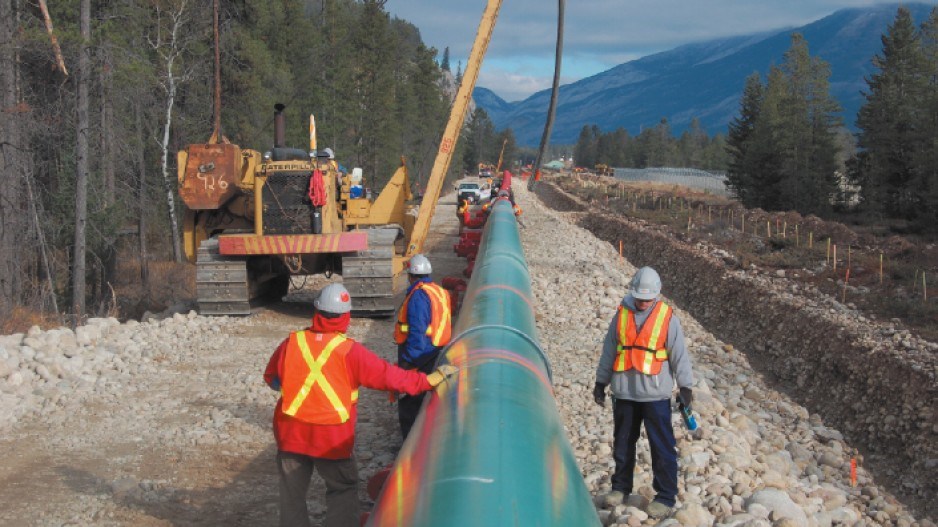After shutting down its Trans Mountain pipeline on Wednesday because of a small leak southwest of Merritt, B.C., Kinder Morgan says the leak has been contained and is hopeful that the pipeline will be reopened Friday afternoon.
Andy Galarnyk, spokesman for Kinder Morgan, told Business in Vancouver Friday morning that repairs to the pipeline are nearly finished and that the company has found no effect to residents or water bodies in the area. Investigative crews, he added, have been at the spill site since Wednesday afternoon.
“Our integrity testing identified a feature [leak] in the pipeline that required further investigation and we were able to prevent it from being worse,” said Galarnyk.
“Part of our ongoing investigation is to identify how long the leak had been going on.”
Original estimates pegged the leak at about 2,000 litres, or 12 barrels, of oil. Galarnyk said Kinder Morgan now believes the leak to be about half that amount.
Kinder Morgan has long been planning to expand its Trans Mountain pipeline – which transports crude oil from Alberta to Burnaby – to supply more oil to Asian markets. Opponents of the proposed expansion say the spill is a clear sign that Kinder Morgan’s expansion plans will cause further environmental damage.
“The accident near Merritt shows that B.C. is not immune to potentially disastrous oil spills,” said Sarah Cox, interim executive director of Sierra Club BC. “It’s proof positive that we need to reject Kinder Morgan’s proposal to build a second pipeline in order to ship tar sands bitumen past Victoria and the Gulf Islands.”
In a written statement, Ben West, tar sands campaign director with ForestEthics Advocacy, said: “This is yet another reminder that it’s not a matter of if spills will happen but when they will happen. Hopefully we were lucky this time and no toxic tar sands oil was released into the Fraser River or any other salmon-bearing streams.”
Currently, the Trans Mountain pipeline carries about 300,000 barrels of oil per day. Kinder Morgan’s expansion, if approved, would nearly triple that amount.
According to a press release from the National Energy Board, the regulatory body holds companies responsible for all cleanup and remediation of a spill site and expects the “full restoration and revegetation” of areas affected by spills. This expectation includes sub-surface groundwater.




